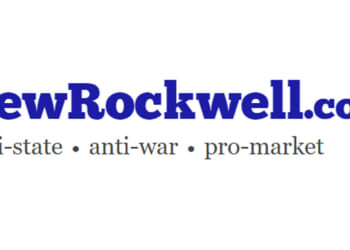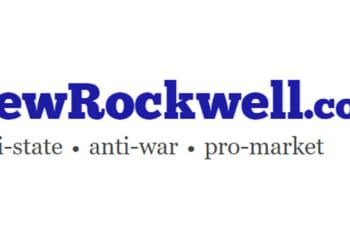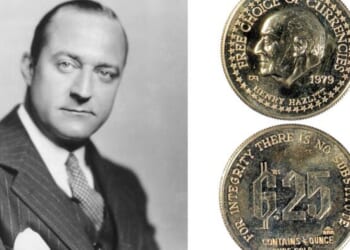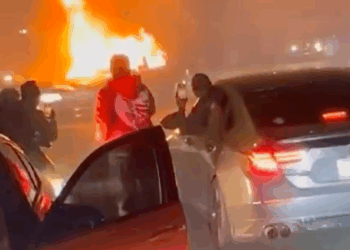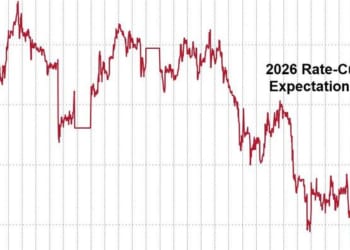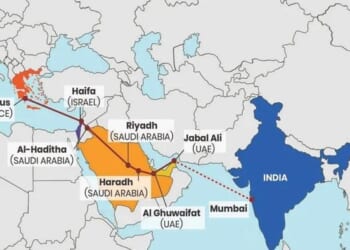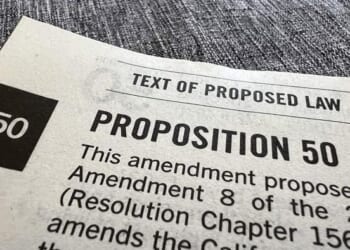Editorial note: this essay originally appeared at The Giving Review.
“Left-wing radicals have made a habit of chanting ‘death to America’ and ‘glory to the resistance’ led by Iran and its terrorist proxies. The First Amendment protects their right to do so, and it should,” Manhattan Institute legal policy fellow Tal Fortgang writes in a February Wall Street Journal op-ed. “But it doesn’t protect them from punishment for crimes: blocking roads, occupying campus spaces, vandalizing property, stealing and burning government-owned American flags, and even assaulting law enforcement.”
The activists’ intent in undertaking these activities is essentially to coerce citizens to urge or permit government policymakers and officials to just capitulate to whatever the underlying demand may be. In the op-ed and an in-depth, Winter 2025 City Journal article, Fortgang describes them as “civil terrorism”—with the adjective necessarily modifying the phenomenon of actual outright terrorism, which is meant to instill fear of violence to achieve the same end of meeting whatever an underlying demand may be. Fortgang recommends certain specific legal responses to civil terrorism, including against nonprofit groups that engage in it and, in some cases, their funders.
In August, a federal district-court judge in Chicago dismissed a class-action lawsuit essentially seeking to invoke the civil-terrorism concept. It was filed by drivers who were blocked by activists preventing them from using a highway to O’Hare Airport, thus causing the drivers to miss their scheduled flights. The district judge held that the suit sought to quash the activists’ free-speech rights and dismissed it; the dismissal is on appeal to the U.S. Court of Appeals for the Seventh Circuit. Earlier this month, Fortgang and his Manhattan Institute colleague Ilya Shapiro submitted an amicus curiae, or “friend-of-the-court,” legal brief in the case, Manhart v. WESPAC Foundation.
Last month, in another City Journal article, “How the White House Can Crack Down on Radical Groups—Legally,” Fortgang further explores legal responses to civil terrorism—along with ones to any radical-nonprofit involvement potentially related to violence more generally. “The White House does not need to target extremist groups for speech—’hate speech’ or otherwise—but for deeds,” Fortgang writes in the piece. “These groups break laws all the time, often blatantly. Their members’ worldview tends to lead them to do so. The Trump administration, therefore, can disrupt the forms of lawbreaking integral to these extremists’ strategy—and, in turn, cripple the networks that support political violence.”
Any pattern of “criminal conduct is what demands a federal crackdown,” he concludes.
The First Amendment protects even offensive speech, but it has never protected criminal conspiracy, material support for terrorism, systematic deprivation of others’ civil rights, or nonprofit fraud. And while it’s too quick to call for prosecutions, the feds have more than enough initial evidence to start asking questions—and to make these infamously opaque groups crack open their books.
Fortgang was kind enough to join me for a recorded conversation last week. The just more than 23-minute video below is the first part of our discussion; the second is here. During the first part, he talks in general about whether and if so, the degree to which constitutionally protected free speech can be limited, and whether tax-exempt groups exercising the freedom of speech have a constitutional right or good policy claim to their nonprofit status. Echoing his writing, he also applies the civil-terrorism concept to certain specific, as in Manhart, and some hypothetical circumstances.
Protection and prosecution, tax-exemption and trade-offs
“You have a smart and thoughtful audience and they know that, of course, our Constitution has always recognized limits on the freedom of speech,” Fortgang tells me. “There are expressive acts or even pure expression that are not protected, that can be prosecuted by the government criminally, that can leave you liable to civil lawsuits, or are otherwise punishable or sanctionable in a perfectly constitutional manner.”
He cites the examples of defamation law and permissible “time, place, and matter” restrictions. “When it comes to conduct that may have an expressive component to it, there are limits on what you can do and it’s perfectly within the government’s power to restrict you from expressing yourself through otherwise-unlawful conduct,” he continues. “Even if you are going to block a highway for expressive purposes, right?, for the sake of a protest, you cannot claim the shelter of the First Amendment and say. ‘I cannot be prosecuted for the disorderly conduct of blocking a highway.’”
In terms of tax-exempt groups exercising free-speech rights, “there’s no inherent right for organizations that focus on speech to enjoy the special status that we afford to nonprofit corporations,” according to Fortgang. “I do think as a matter of policy normatively, it’s a good thing that we have educational institutions that are largely expressive engaged in essentially political speech—not in the sense of electioneering, but in the sense of informing our politics—and that such organizations can exist.”
In the context of groups like this that have sought and gotten nonprofit status, however, “the trade-off has always been if you’re going to enjoy this protected status as a nonprofit, there have to be certain transparency requirements and you have to be scrupulous about following the law,” he notes. “Don’t be fraudulent about your purposes and what you’re doing with your money and your personnel, and do not use your status to try to whitewash or cover up criminal activity.”
Circumvention and conflation
Again referring to the blocking of highways, Fortgang says “civil terrorism” “is an apt term for what we’re observing. Terrorism is an act of violence for political ends. It’s geared towards coercing or intimidating a civilian population into adopting a certain policy position.” Civil terrorism “is not violent terrorism in the sense of using bombs and guns. … I don’t want to impugn these groups unduly and say that they are the same as al-Qaeda or Hamas, God forbid.
“They engage in more civil tactics, but the logic is the same,” he explains. “The logic is, ‘We will break the laws that exist to preserve the good working order of society. We’re going to break those laws so that we can inconvenience people’” to the point where those people say to government elected officials, “‘Make these people go away, give them what they want.’
“That subverts and circumvents the political process, because instead of engaging in speech that leads to persuasion” and “leads to democratic outcomes where the will of the people is actually represented, Fortgang continues, “this just does an entire run-around and says, ‘We’re going to make law-abiding, people cry uncle, and that’s how we’re going to get what we want.’ It is the logic of terrorism. It is civil, if unlawful, in its methods.”
Manhart v. WESPAC, he adds, “is really a consummate civil-terrorism case. … It’s really exactly what civil terrorism is meant to do—make someone’s life miserable.” The plaintiff class is saying “the prosecutors in Illinois are not going to hold these people accountable. It’s not worth their time, the incentives just aren’t properly aligned.” The class is raising “the cost of engaging in this kind of unlawful activity, which is what civil litigation does all the time.”
The district-court judge’s quashing of the suit in Manhart, “calling it essentially an effort to quell pro-Palestinian speech,” as Fortgang describes it, “is exactly the conflation that civil terrorists rely on. They want judges and regular Americans and everyone observing to say, ‘This is essentially speech, political expression.’”
With this conflation, he goes on, “they can continue doing it and continue exploiting the difference between what people feel—which is … a crazy imposition on our lives, that our highways can be blocked at any moment, that our public spaces will be vandalized, and that disorder will reign”—and protected speech.
“It’s obviously not protected speech,” Fortgang says. “Blocking a highway, no matter what you’re saying while you block the highway, is not protected speech. And if you suffer financial losses because the highway was blocked, you should have a right to compensation.
“If you’re using your nonprofit status to organize unlawful activity,” moreover,
you are abusing the implicit deal that I talked about earlier, about using your special nonprofit status for good to advance the public welfare through robust and informed discussion of speech. I don’t think that there’s anything inherent in our nonprofit system that says that you should be able to organize crimes, even if you think that those crimes advance the public welfare in some way. That seems like a pretty crazy reading of our nonprofit system.
Civil-disobedience distinctions
Fortgang distinguishes civil terrorism from the civil disobedience of protests during the civil-rights era. “For the most part, civil disobedience” in that era “was meant to draw attention to the injustice of the law being violated,” according to Fortgang. “No one thinks that there’s anything on just about laws blocking highways or preventing vandalism, at least not for now.”
Plus, more largely, “those who engaged in civil disobedience did not have access to the democratic process. That was precisely what they were protesting against,” he says.
Their ability to vote was actually hampered, and they had to express … their will as a cohort of American citizens by other means.
No one today claims that the activists who blocked the Golden Gate Bridge or vandalized Columbia University’s property are being denied access to the democratic process and are unable to vote their will and express it that way. They’re just choosing not to use those lawful, wonderful means to advance their ends. They are choosing law-breaking where law-breaking is not the only option.
In the conversation’s second part, Fortgang more about the concept of civil terrorism and—in the nonprofit context—existing and potentially strengthened anti-racketeering and -conspiracy, anti-riot, and foreign-agent-registration laws, as well as the effects and potential reforms of regulations permitting fiscal sponsorship of projects and activities.




